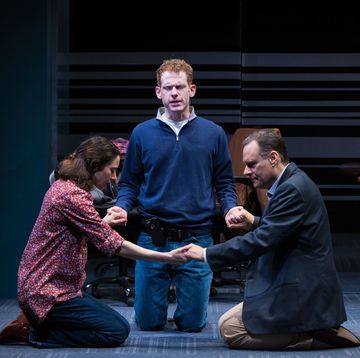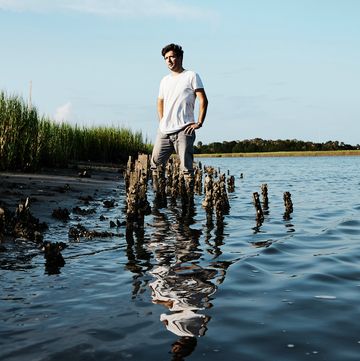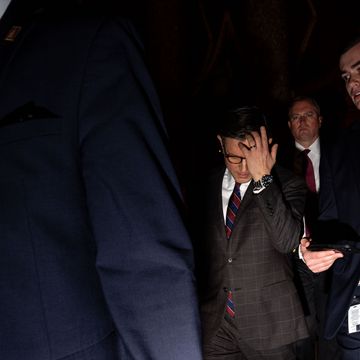If you want to talk noted drunks and travelers, there's only really one name you have to know, and that's Kerouac, who woulda been 92 today. Even your spellcheck gets his last name right. You say it 'Kero' like kerosene and 'uac' like a duck. It's fitting for someone as mercurial, unpredictable, and altogether wild such as he. Since his early death at 47 in 1969 of liver failure thanks to a lifetime of alcohol abuse, Kerouac has become somewhat of a totem of the young and restless; his books still inspiring young men to burn the candle at both ends, so to speak. Inspiring them, too, to hit the road to find something they can't see but only feel. And to also get sufficiently loaded along the way, too.
Born Jean-Louis Kerouac in Lowell, Massachusetts on this day in 1922, Kerouac spent much of his mid-to-late 20's criss-crossing the country. It was in these early years that he made bonds and friendships that would last a lifetime (Alan Ginsberg, Neal Cassady, Lucien Carr) and it was during this period of true self-exploration that he would develop the style of writing that, several years later, make him a household name. In April of 1951, at the age of 29, he sat down at his kitchen table at 454 West 20th Street and began cranking out On The Road for three weeks, armed with a steady supply of benzedrine. As the legend goes, he taped sheets of tracing paper together to form one, long, steady roll which would become the manuscript for On The Road. He wrote it so that it would sound as improvised as the jazz music he loved, and this bleeding between the music and the literature has never been finer. Fast-forward a few years to publication and that kitchen scroll made him somewhat of a king among the fledgling Beatnik hipster scene. (Oh, you thought hipsterism was a new thing? Allow me to go all "Hipster 101 with Professor Ned" for a second: This whole "beards and artisanal coffee and poetry" thing has been going on for nigh-on 60 years, brought to the forefront by people like Kerouac and Ginsberg and that whole scene.)
Jack was, of course, a filthy drunk. His battles with alcoholism both helped him (in the lyrical and Buddhism-leaning Big Sur) and hindered him – check out this 1968 talk show interview where Jack can barely hold it together. Ultimately, it was that desire and addiction to keep getting back to that feral state, that real jazz state, that ended up killing him. While his early death crystalized his image as a traveling hipster troubadour, his alcoholism, surely, robbed us of a few more great novels. And it made him lazy: in his later years he'd copy full paragraphs from his earlier work, dropping it into new volumes as if he thought nobody would notice. It may be fun to romanticize Kerouac, as many surely do. But Kerouac's bad work, the laziness and self-doubt, perhaps says as much about who he really was as the books that he is ultimately remembered for.
As time goes on, fewer and fewer young men are willing to break the mold on early adulthood and go on the road to see what they can see. And it's a crying shame, too, man; with each passing generation Kerouac's work loses the influence and verve it once had. Nobody hops a train anymore, let alone hitchhikes (and we've all got goddam' iPhones now for Chrissakes anyway), so we'll never know the true pleasure of getting lost, getting loaded, and finding out who we really are along the way back home.













